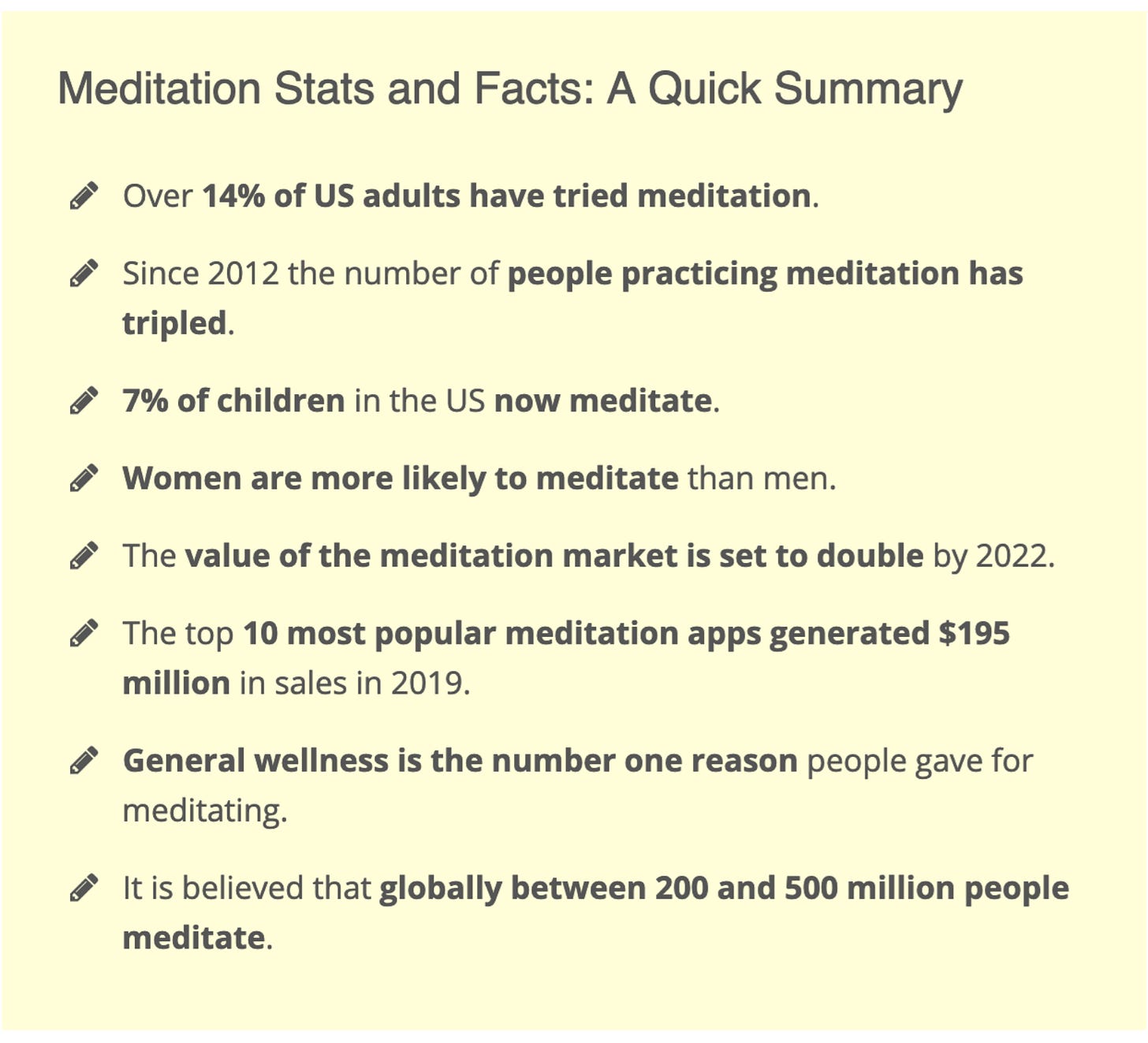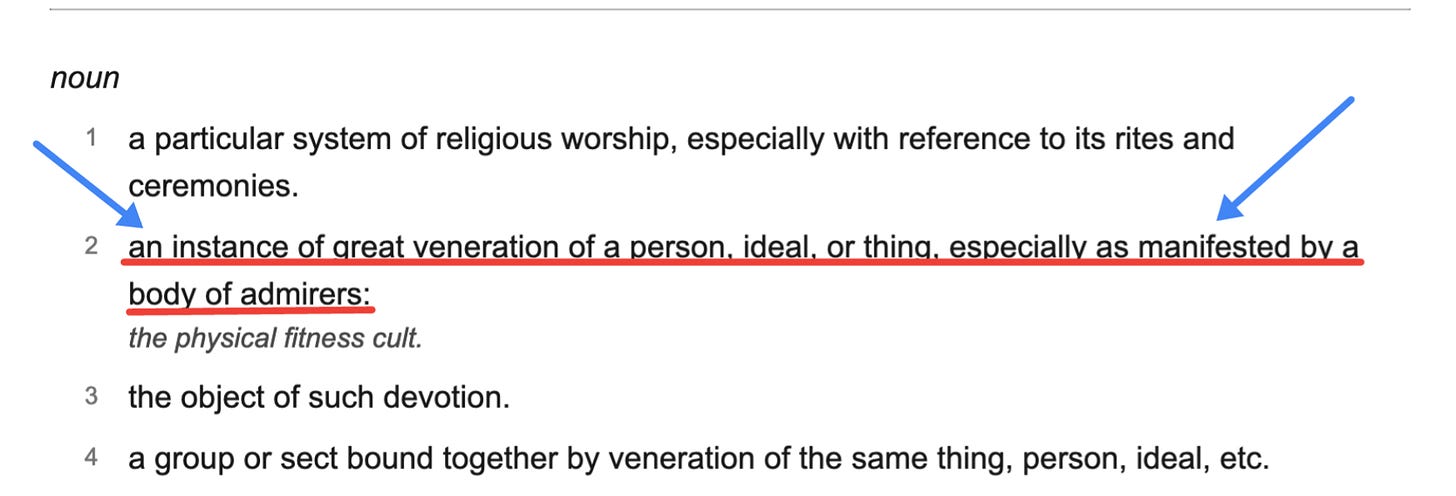Kyborg 21: SOS5
The Cult of the Self
If you ask someone what meditation is, you will likely learn that it’s an ancient practice, maybe even an ancient Eastern practice. But what do you make of the fact that 7% of all American children practice meditation in school and that it’s a quintessentially modern phenomenon to see such a large % of children meditating (whatever that might mean).
Whatever else mass meditation might be, it’s not the same as what tiny forest communities in ancient India would have experienced. No more than large scale biomedical science is the same ‘science’ as an isolated investigator peering at the heavens a couple of thousand years ago.
Buddhism (and to a much lesser extent various Hindu traditions) is flourishing in the West and many practitioners are undoubtedly serious about their faith, but what if I said that Buddhism is primarily feeding into the cult of the self?
‘Cult’ is a pejorative term, but I am using it in a technical sense, to mean:
The modern self has more admirers than any that came before, and that admiration spawns many a self-making technology. Meditation is just one of them: drugs are another, so are MBA programs and therapy sessions. Even big data has gotten into the game with the quantified self. Whatever meditation was in the past, it’s ubiquity is because of the self and its future (which could be a non-self or a fragmented self) are central concerns of our time.
Somewhat tongue in cheek, we can say Kant is the prophet of this new religion.
Universal ‘Self’-Respect
Such is the veneration of the self that even when we abuse it, we do so in its name.
Because respect for the self is axiomatic and taken for granted, people rarely have the desire to question where it comes from (another reason to call it a cult) and when they do, they can’t identify the reason why they venerate it so much.
The easiest fallback is to say the self’s divinity is a reflection of ‘real’ divinity, i.e., the divinity of God. Which is often discussed in the negative, by saying that it’s only because of God that we stay away from committing evil, and that the direct worship of the self leads to all kinds of perversions.
But we might turn that around and say that it’s precisely because the self is the object of worship that so much is permitted: from drugs to MBAs to swapping religions to the quantified self.
There are many paths to the worship of the self. Metaphysics is one of them, as our study of Kant will tell us soon. However, the self isn’t an unmoved mover in the way the divine was; it’s changed by the act of worship, as advertising tells us everyday. The various technologies of the self are all technologies of self-transformation. Capitalism provides a broad umbrella for housing a range of these technologies, but the worship of the self is very much alive in other economic and political configurations as well.
This worship isn’t bad: for example, who can complain about human rights? Or when Amartya Sen talks about “Development as Freedom” he’s talking about the ways in which the self can flourish in the world and that development is nothing but providing the opportunities for that flourishing to happen.
Next Week
I will continue with Taylor.








